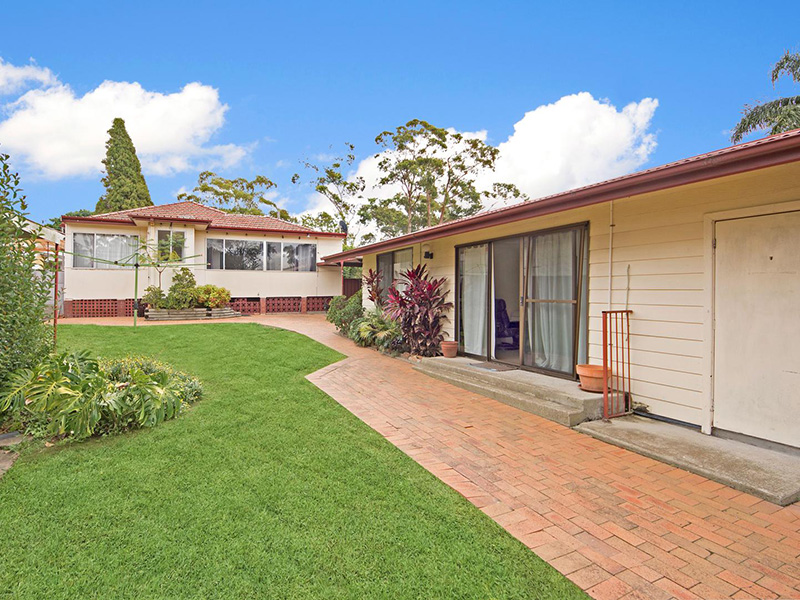Granny unit pros and cons in Maryland and Washington DC
If you’re a homeowner in Maryland or Washington DC, you’ve likely heard of granny units–little self-sustaining dwelling units that are often placed on the property of a larger home. Although the concept has been around for some time now, it’s becoming increasingly popular as more and more people look for ways to provide cost-effective housing solutions for their growing families or secondary income sources from renting them out. But with great potential comes potential risks too – in this blog post, we’ll discuss the pros and cons of setting up such a unit so that you can make an informed decision on whether it’s worth investing in one or not.
 What is a Granny Unit and How Can it Benefit You
What is a Granny Unit and How Can it Benefit You
A granny unit, also known as a mother-in-law suite or an accessory dwelling unit (ADU), is a secondary living space located on the same property as a primary residence. Granny units come in different sizes and can range from a simple bedroom and bathroom to a fully-equipped apartment with a kitchen, living room, and more. Granny units offer numerous benefits, including allowing homeowners to provide a space for aging parents or family members who need assistance while still maintaining some level of independence. They can also be used as rental properties, providing homeowners with an additional source of income. Additionally, granny units can increase property value and provide flexibility for homeowners who may need extra space for guests, a home office, or a studio. Overall, a granny unit can be an excellent investment for homeowners looking to expand their living space and enhance their property.
Legal Considerations for Granny Units in Maryland and Washington DC
When it comes to building a granny unit, it’s important to understand the legal considerations in Maryland and Washington DC. While these units can provide many benefits for families looking to accommodate aging relatives or generate rental income, there are zoning laws, building codes, and regulations that must be followed. In Maryland, for instance, local laws dictate that the owner of the primary residence must occupy either the unit or the main residence – not both. In Washington DC, zoning regulations require that granny units be built as accessory dwelling units, which is only allowed in certain zones. Understanding these laws and regulations is essential to avoid potential legal repercussions and ensure that your granny unit is a success.
Pros of Installing a Granny Unit
With the rise of multigenerational living, installing a granny unit has become a popular option for families. These units, also known as accessory dwelling units, offer a range of benefits for both the occupants and the property owner. From providing additional living space for elderly parents to generating rental income, granny units are a versatile addition to any home. They also increase the resale value of the property and offer flexibility in terms of how the space can be used. Granny units can be customized to suit the specific needs and preferences of the occupants, making them a practical and personalized solution for multigenerational households. Overall, installing a granny unit is a wise investment that offers plenty of advantages for homeowners.
 Cons of Installing a Granny Unit
Cons of Installing a Granny Unit
Installing a granny unit has its downsides. These units can be expensive and time-consuming to build and may require an extensive permit process. Additionally, these units often reduce the amount of outdoor space available on the property, which may affect the appeal of the home when it comes time to sell. Further, many local governments impose strict standards on construction design and dimensions, as granny units can affect the zoning or neighborhood look and feel. Finally, if not managed properly, rental income generated by these units may be subject to taxes that were previously exempt. As such, homeowners should take into consideration all of these possible costs before installing a granny unit on their property.
Cost Analysis for Granny Units in Maryland and Washington DC
When considering the addition of a granny unit to your property, it’s important to assess the associated costs. In Maryland and Washington DC, cost analysis for granny units can vary greatly. Factors such as materials, labor, location, and the size of the unit all play a role in determining the total expense. It’s important to work with professionals in the field who can provide accurate estimates and guide you through the process. Keep in mind that while granny units may require a significant investment upfront, they can ultimately add value to your property and provide a comfortable living space for loved ones.
Despite the potential legal setbacks and the cost of building a granny unit, these units can be a great investment for homeowners in Maryland and Washinton DC. Granny units, also known as accessory dwelling units, are an affordable way to add square footage to your home without compromising outdoor or interior space. They also provide additional income opportunities and bring multi-generational value. Moreover, you’ll have peace of mind knowing that your house is prepared to handle whatever changes the future may bring. Now that you’ve learned all about how a granny unit could benefit you and what considerations you need to make when building one in Maryland and Washington DC, consider calling Winthorpe Design & Build for your next home remodel project. With over 25 years of experience remodeling homes & businesses in the DC metro area, our team will provide efficient solutions with top-notch customer service – guaranteed!





